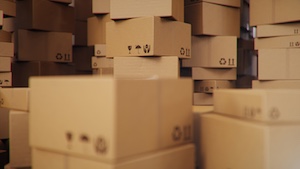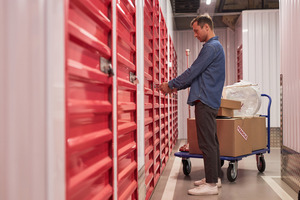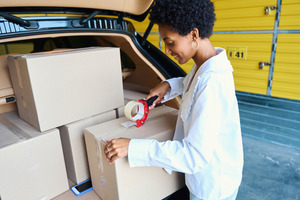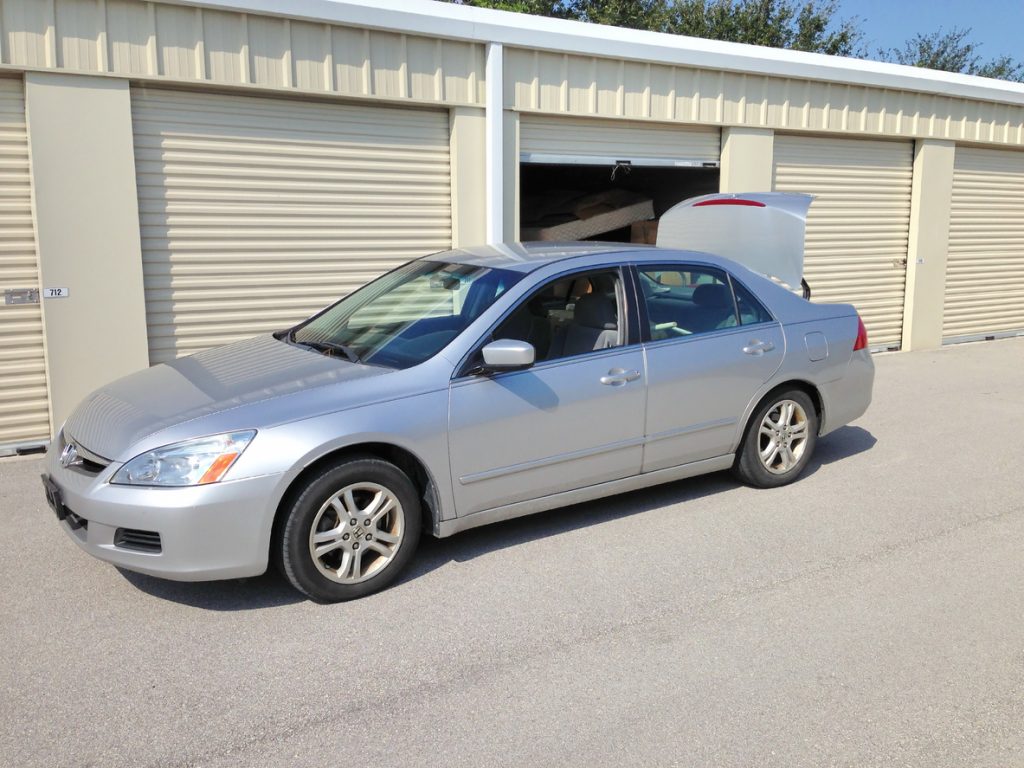The consequences of fire, flooding, and other natural disasters can be devastating for anyone who has entrusted their possessions to a self-storage facility.
In 2019, we reported on three storage facility fires in as many years in the UK, highlighting the importance of thoroughly vetting any facility you use and taking the steps necessary to protect your possessions in storage.
Customers have been left devastated after a fire at Tameside Self Storage, Manchester, destroyed hundreds of storage units.
The blaze, which broke out at the weekend and was finally brought under control on Sunday around 21.30, has left many fearing that their entire belongings have been completely wiped out.
It has been reported that the fire took a total of 25 fire engines and three aerial appliances to put it out after plumes of smoke were first reported being seen over the M60 and M67. Homes nearby were temporarily evacuated, although residents have now been able to return home.
Customers of the facility have been sharing their experiences on the Tameside Self Storage Facebook page, with one man commenting “My entire life is in that unit, I’ve lost everything, pictures, thousands of pounds worth of stuff for my new house!”
A poll on a Facebook group created for those affected by the fire showed that a large majority of customers believed they were insured by the company’s ‘free insurance’ offer, something that now appears to be under question.
At Surewise, our hearts go out to those who have lost items in the fire and we can assure our customers who have been affected by this incident with a policy with us will be handled ASAP.
Insurance for Fire and Other Natural Disasters
Of course, accidents happen, and while you can never fully guarantee that your belongings are 100% safe when in storage, you can ensure that the replacement value of the items stored is at least covered by your insurance policy.
- Your insurance policy should begin as soon as your items go into storage. If you take out an insurance policy after an incident, you will not be covered for any loss or damage to items previous to your policy starting.
If you would like to ensure your items are properly covered, here are a few essential steps to keep in mind:
- It is essential that you check that any storage insurance policy covers the full value of your items. Unfortunately, many of the generic insurance policies offered as a part of your contract with a self-storage facility will rarely cover the full cost of items to have stored – in the past, we’ve seen people fall victim to believing they had adequate insurance in place only to find out otherwise in the event of massive loss or damage to their belongings.
Our self-storage insurance quote tool makes it easy to establish the value of the items you have stored and ensure you have adequate cover.
- Always read your full policy wording and make sure that the items you have stored are actually covered. For example, our self-storage insurance will not cover you for currency or dangerous/explosive items, while some other items may have limits.
It takes a little more time to thoroughly read through your insurance documents, but it is worth it to make sure that those possessions you have stored can be replaced should something happen to them.
- Think carefully about storing sentimental items. A self-storage insurance policy may be able to cover the replacement value of items lost or damaged, but you will never be able to replace sentimental items like photographs and family heirlooms. You should think carefully about the risks of storing these items and whether you would feel happier keeping these belongings closer to home.
- Store your most sentimental items higher than the floor level in your unit. Our experience of helping people with claims following storage unit fires has shown us that in the event of a fire units that aren’t immediately damaged by the actual fire can suffer flooding from the water used by the fire brigade. Most of this damage happens at floor level, so if you do choose to store sentimental items in a storage unit, raising these items above this height would help reduce the risk of water damage.
Choosing a Safe Self-Storage Facility
In regards to the Tameside Self-Storage facility, in particular, it’s unlikely that the cause of the fire will be revealed for several weeks when the fire services have filed a complete report.
More generally speaking, vetting your storage facility should be an essential part of hiring a unit. Ideally, you will be able to view a facility in person to make sure they have the appropriate security and safety features in place to keep your items safe and alert the relevant authorities as soon as possible in case of an emergency.
Here are a few things to look for when viewing a self-storage facility:
- Does the facility have fire alarms and smoke detectors located throughout the premises?
- Is there CCTV? If so, how many cameras and where?
- Is there an alarm system in place to prevent burglaries and break-ins?
- Is the facility manned 24/7 and if not, how long is it left unsupervised?
- Does the premises have a fenced perimeter?
- Do storage units have a sprinkler system to guard in case of fire?
- Are units dry, clean, and have adequate locking features?
Viewing the site yourself will help you verify how up-to-date these features are too – keep in mind that a facility that opened 20 years ago will need to have upgraded its systems on a regular basis to stay secure.
In-House Insurance vs Third-Party Insurance Providers
In an investigation conducted by Telegraph Money, it was revealed that 99% of self-storage insurance customers can save up to three times as much on their insurance with a third-party provider such as Surewise instead of buying their policy directly with their storage facility.
Not only can we offer more affordable insurance, our quote tool guides you through every step of the process to guarantee that you know what you are covered for, how much coverage you need, and what you are not covered for.
Taking this additional step will help you verify that the policy you have actually covers the items you have in storage.
Many self-storage facilities ask customers to have storage insurance as a mandatory requirement, but this is something you should have in place whether the company recommends it or not. Don’t take the risk with your belongings.







